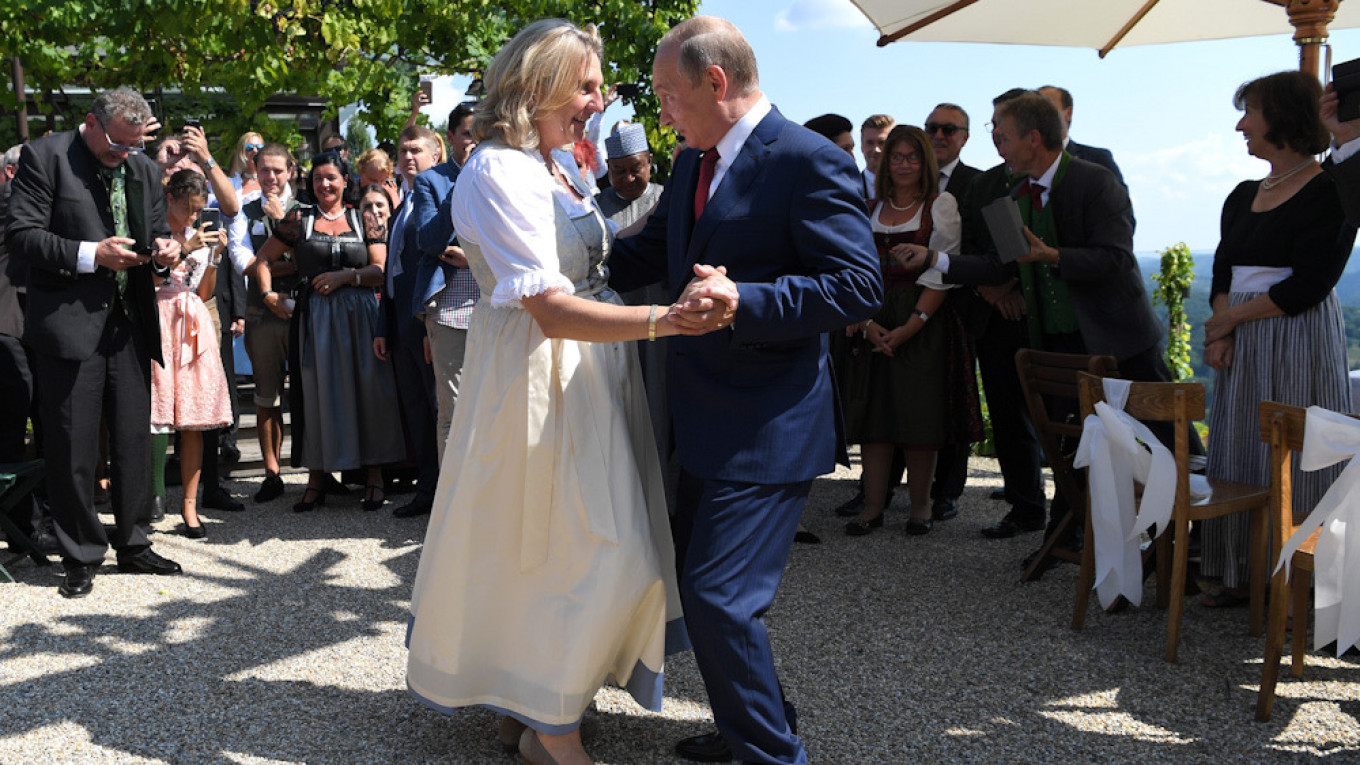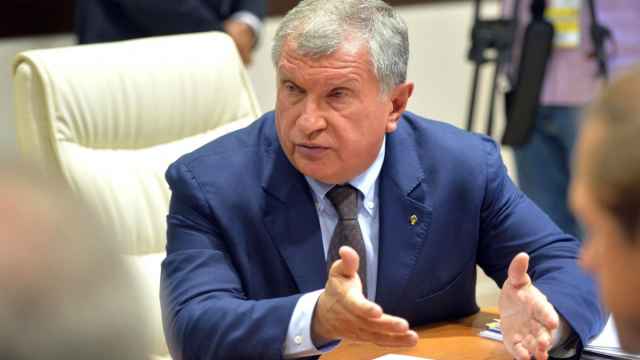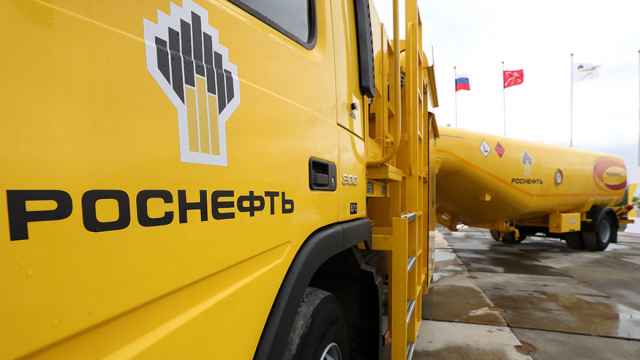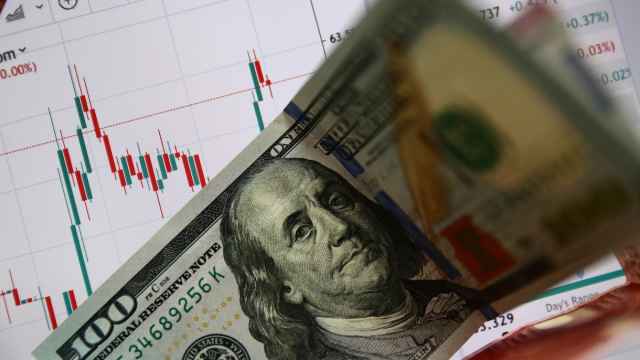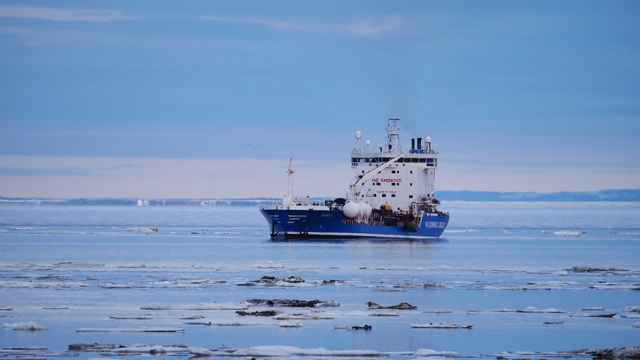A former Austrian foreign minister who danced with Russian President Vladimir Putin has been voted onto the board of directors of Russia’s largest oil company.
Karin Kneissl, who served as Austria’s foreign minister from 2017-2019, will join the board of state-controlled Rosneft, the company said Wednesday in a statement.
Kneissl caused a stir across Europe in August 2018 when she invited Putin to her wedding, and was pictured dancing with the Russian president just months after the EU had expelled dozens of Russian diplomats and several countries had broken off high-level meetings following the Novichok nerve agent attack on Sergei Skripal in Britain.
Her appointment was confirmed by a vote of Rosneft’s shareholders at the firm’s annual general meeting (AGM) on Tuesday, after being nominated to the post in March.
Rosneft, which is majority-controlled by the Russian government, accounts for around a third of the country’s lucrative oil extraction. Boss Igor Sechin is a close ally of Putin and seen as one of Russia’s most influential figures.
Kneissl becomes the second former European government minister to serve on Rosneft’s board, joining former German chancellor Gerhard Schroeder, who is also chairman of Gazprom’s controversial Nord Stream 2 initiative.
Three other Western business figures sit on Rosneft’s board, including the American former BP boss Bob Dudley and the Irish current BP CEO Bernard Looney. BP owns a 19.75% stake in the oil giant. The rest of the 11-strong body is made-up of Russian government figures and representatives from Qatar, which also owns an 18.53% stake of Rosneft.
Rosneft posted profits of 147 billion rubles ($2 billion) in 2020 — down 80% on pre-pandemic levels — as it slashed production as part of Russia’s pact with Saudi Arabia to prop-up oil prices throughout the pandemic.
A Message from The Moscow Times:
Dear readers,
We are facing unprecedented challenges. Russia's Prosecutor General's Office has designated The Moscow Times as an "undesirable" organization, criminalizing our work and putting our staff at risk of prosecution. This follows our earlier unjust labeling as a "foreign agent."
These actions are direct attempts to silence independent journalism in Russia. The authorities claim our work "discredits the decisions of the Russian leadership." We see things differently: we strive to provide accurate, unbiased reporting on Russia.
We, the journalists of The Moscow Times, refuse to be silenced. But to continue our work, we need your help.
Your support, no matter how small, makes a world of difference. If you can, please support us monthly starting from just $2. It's quick to set up, and every contribution makes a significant impact.
By supporting The Moscow Times, you're defending open, independent journalism in the face of repression. Thank you for standing with us.
Remind me later.


